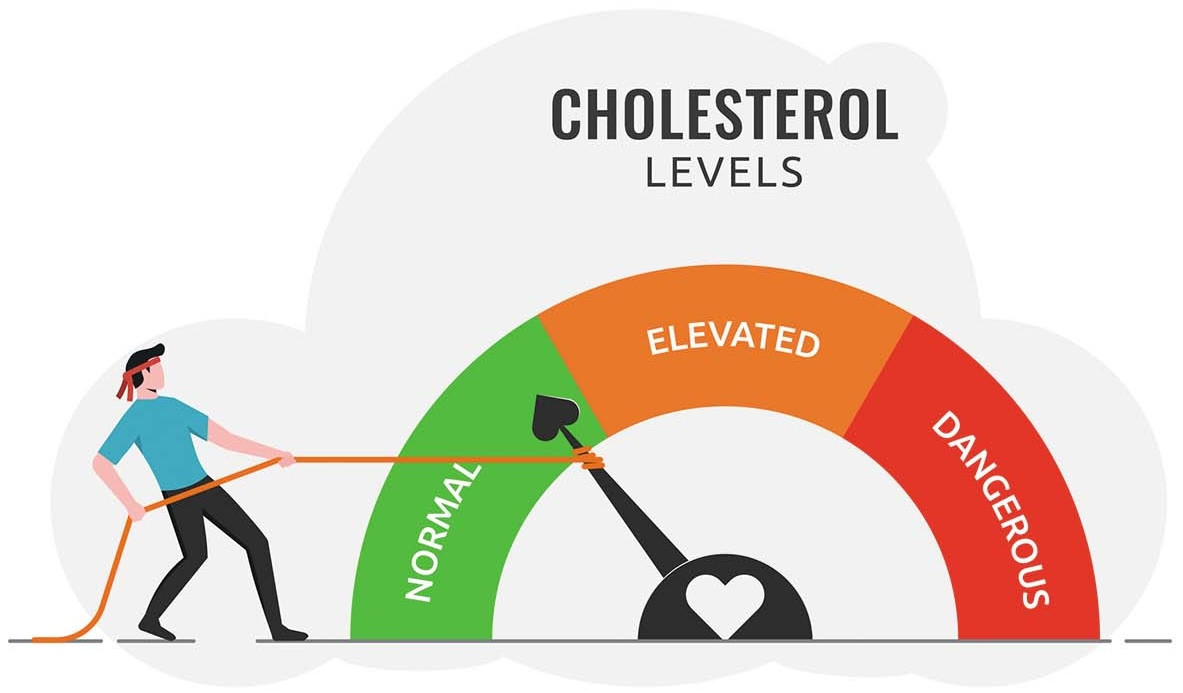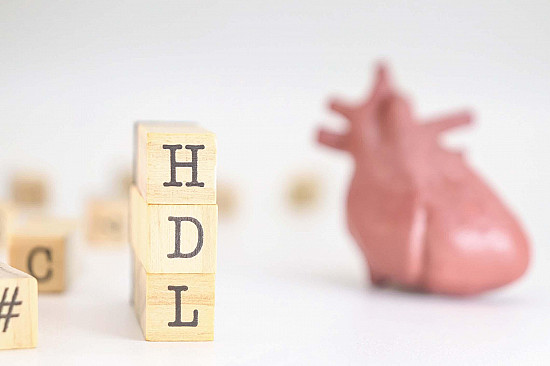How low should LDL cholesterol go?
Your number depends on your cardiovascular risk factors.
- Reviewed by Howard E. LeWine, MD, Chief Medical Editor, Harvard Health Publishing; Editorial Advisory Board Member, Harvard Health Publishing

When it comes to reducing "bad" low-density lipoprotein (LDL) cholesterol levels, how low should you go? "People who are at high risk for cardiovascular diseases can benefit from driving LDL levels as low as possible to help reduce their risk for heart attacks and strokes," says cardiologist Dr. Christopher Cannon, editor in chief of the Harvard Heart Letter. "Across many large clinical trials, for LDL, the lower the better."
The good and the bad
Cholesterol is a fatty substance that occurs naturally in the body. The body uses it to make cell membranes and certain hormones. The fat you consume from food is absorbed in the intestine and transported to the liver, which converts it into cholesterol and then releases it into the bloodstream.
Eating high-cholesterol foods often has only a modest impact on cholesterol in the blood, but many such foods are also high in saturated fats, which have a greater effect on cholesterol levels. "Most of your cholesterol level is determined genetically," says Dr. Cannon.
There are two main types of cholesterol: LDL and high-density lipoprotein (HDL). LDL is called "bad" because excess amounts in the bloodstream can lodge inside artery walls. These deposits, called plaques, can rupture and trigger clotting that blocks blood flow to the heart or brain, causing a heart attack or stroke.
By comparison, HDL has in the past been considered "good" because some forms of HDL collect excess cholesterol from the bloodstream and artery walls. Still, notes Dr. Cannon, "many clinical trials have found that raising blood levels of HDL does not lower the risk of heart attack or stroke, so the focus is on lowering LDL."
By the numbers
Current guidelines from the American Heart Association and the American College of Cardiology set optimal LDL levels for the general population at below 100 milligrams per deciliter (mg/dL); 100 to 159 mg/dL is deemed high, and 160 mg/dL and higher is considered dangerous.
People with known cardiovascular disease should aim for LDL levels below 70 mg/dL. "Thus, across the spectrum of patients, the higher risk ones have a lower goal for LDL," says Dr. Cannon.
Besides high LDL levels, having one or more other factors also can contribute to your cardiovascular risk, such as
- a family history of premature heart disease (a father or brother who was diagnosed at 55 or younger, or a mother or sister diagnosed before age 65)
- smoking
- obesity
- diabetes
- high blood pressure
- low levels of HDL (below 40 mg/dL).
Why the focus on 70 mg/dL? "Studies have shown that when LDL falls below this number, plaques in arteries get smaller and they stabilize, which lowers the risk for heart attacks and stroke," says Dr. Cannon.
But how far below 70 mg/dL should you go? Clinical trials have shown and European guidelines recommend that people with cardiovascular disease at the highest risk should aim for LDL levels below 55 mg/dL. Dr. Cannon notes that the U.S. guidelines have not been updated since 2018, and believes they will eventually follow Europe's lead and make 55 mg/dL the new target for high-risk individuals.
What about people who are not at high risk? In most people in this group, LDL levels between 100 and 130 mg/dL may be acceptable. "However, we still generally aim for LDL levels below 100, since benefits have been seen in trials that look at ways to prevent cardiovascular disease," says Dr. Cannon. "Ultimately, your doctor can suggest the ideal target LDL based on your cardiac risk factors and history."
Lifestyle and medications
The first step to lowering high LDL levels is making dietary changes — cutting down on saturated fat by adopting a heart-healthy diet like the Mediterranean, DASH, or other similar plant-based diets — losing weight, and increasing exercise.
But often medication is needed to help drive down very high LDL levels and keep them low. This usually begins with a type of drug called a statin.
Statins work to lower LDL by blocking an enzyme in the liver that helps make cholesterol. The drugs also have anti-inflammatory properties, and inflammation is a known contributor to plaque buildup. Another benefit: statins help prevent plaques from breaking open and releasing chemicals that stimulate blood clot formation, which leads to heart artery blockage and a heart attack. Depending on your LDL level, your doctor will recommend the best statin and dosage for your situation.
The downside to statins is the possible side effects. The most common are achy muscles. If this happens to you, your doctor can temporarily lower the dose or switch to a different statin.
While statins are the first-line drug choice, three other classes of medications also can help reduce LDL — ezetimibe (Zetia), bempedoic acid (Nexletol), and PCSK9 inhibitors (Repatha, Praluent, or Leqvio). "Any of the three can be added to or substituted for statin therapy if people have not reached their LDL goal, or if they cannot tolerate statin side effects," says Dr. Cannon.
Ezetimibe blocks cholesterol absorption in the intestine. Bempedoic acid and PCSK9 inhibitors work on liver cell receptors to increase the uptake and destruction of LDL cholesterol, thereby lowering LDL blood levels.
Can your LDL be too low? Not really, says Dr. Cannon. "Driving down LDL to really low levels might increase the risk of medication side effects, but there are no problems directly related to very low LDL levels."
Image: © Diki Prayogo/Getty Images
About the Author

Matthew Solan, Former Executive Editor, Harvard Men's Health Watch
About the Reviewer

Howard E. LeWine, MD, Chief Medical Editor, Harvard Health Publishing; Editorial Advisory Board Member, Harvard Health Publishing
Disclaimer:
As a service to our readers, Harvard Health Publishing provides access to our library of archived content. Please note the date of last review or update on all articles.
No content on this site, regardless of date, should ever be used as a substitute for direct medical advice from your doctor or other qualified clinician.
















